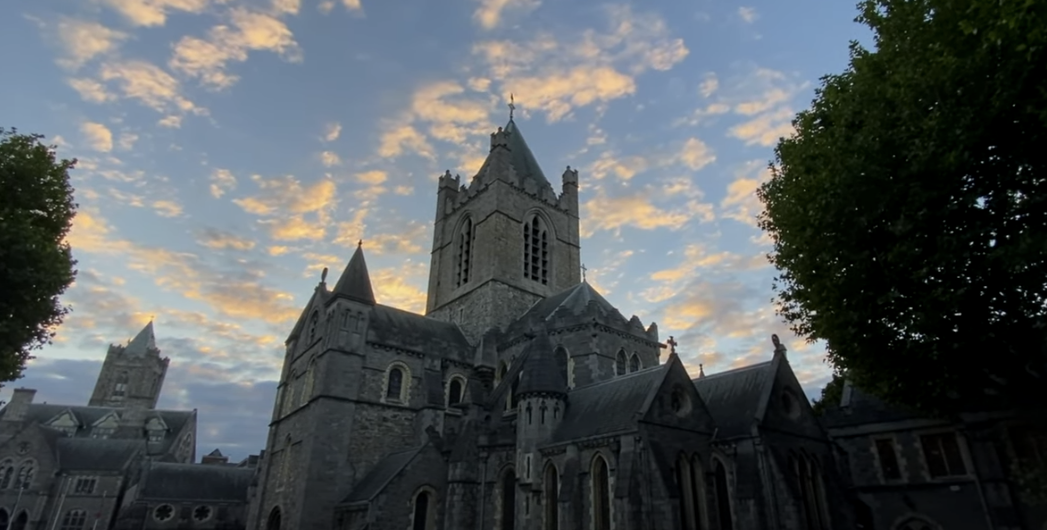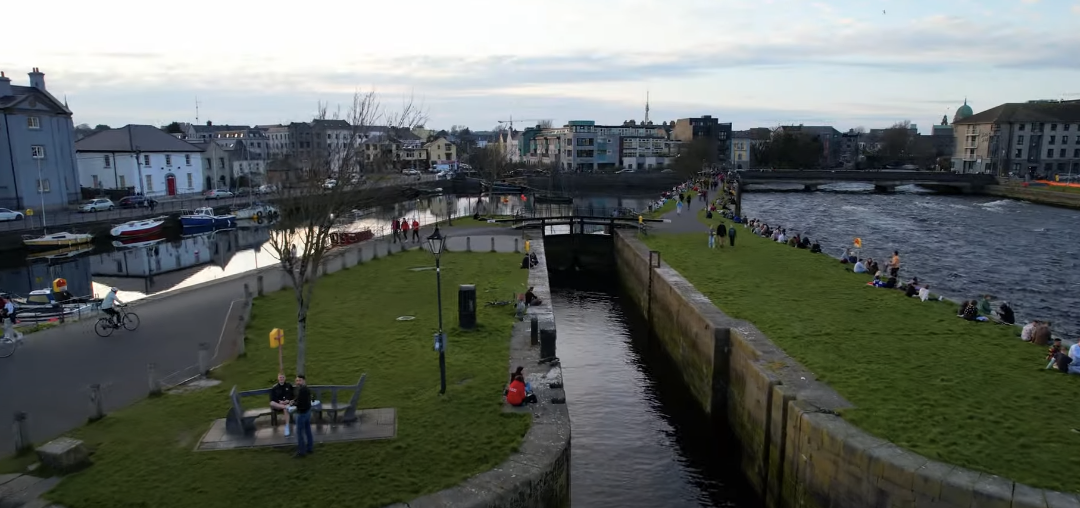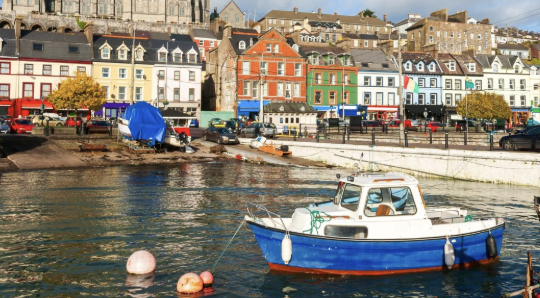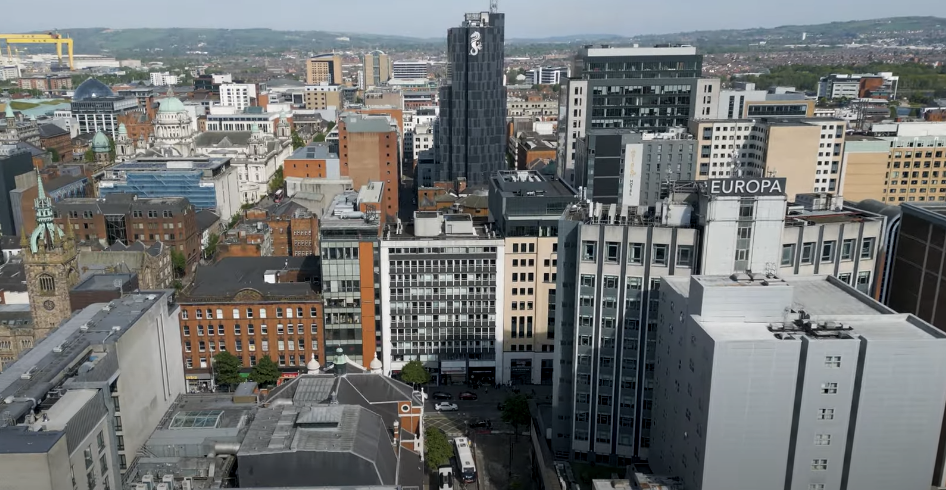Ireland is a must-visit destination for travelers seeking a perfect blend of rich history, breathtaking landscapes, and vibrant culture. From the bustling streets of Dublin to the tranquil beauty of the Cliffs of Moher, Ireland offers something for every type of traveler.
If you're looking to explore its scenic coastal routes or dive into the local traditions, here are the essential travel tips to ensure you make the most of your trip. During my time in Ireland, I was captivated by the warmth of the Irish people, the charm of hidden countryside villages off the beaten track, and the unforgettable magic of live Irish music in cozy Irish pubs—experiences that made my journey truly special.
Consider using the Dublin Pass for access to various attractions and plan a few day trips from major Irish cities. Utilize car hire or car rental services from Dublin Airport to conveniently navigate the island. With your rental car, you'll enjoy the freedom to explore Ireland's iconic landscapes and delve into the rich cultural tapestry that Irish tours uniquely offer.
Best Time to Visit Ireland
The best time to visit Ireland is during the late spring and early summer, specifically from May to June. During these months, the weather is mild, and the days are longest, offering ample daylight for exploring. This period also sees less rainfall compared to other times of the year, making it ideal for outdoor activities like hiking and sightseeing. Additionally, the countryside is vibrant with blooming flowers and lush greenery, enhancing the natural beauty of the landscapes. Early autumn, particularly September, is another great time for a visit, with comfortable temperatures and fewer tourists.
Visa and Entry Requirement for Ireland
Visa and entry requirements for Ireland are crucial for planning your trip. To ensure a smooth arrival and enjoyable journey, familiarize yourself with the necessary documents and regulations. The process is straightforward, but attention to detail is essential.
-
Passport: Valid for at least six months beyond your planned departure date from Ireland.
-
Visa: Depending on your nationality, a visa may be required. Check the Irish Naturalisation and Immigration Service (INIS) website for specifics.
-
Proof of Funds: Demonstrate sufficient funds to cover your stay, typically shown through bank statements or a letter from a sponsor.
Top Destinations To Visit in Ireland
Top Destinations to Visit in Ireland include Dublin, Galway, Cork, and Belfast. Each city offers unique experiences and essential sights for travelers. Dublin, the capital, is rich in history and culture. Galway, known for its vibrant arts scene, is a gateway to the scenic West Coast. Cork boasts gourmet food markets and close proximity to picturesque coastal towns. Belfast, with its historic shipyards and the Titanic Museum, provides a deep dive into Northern Ireland's industrial heritage. Explore these cities to capture the essence of Ireland in.
Dublin

Dublin stands as a must-visit city for any traveler exploring Ireland. Explore the historic Dublin Castle, the center of British rule in Ireland for centuries. Visit the Guinness Storehouse to learn about and taste one of Ireland's most famous exports. Stroll through the lush St. Stephen’s Green, a perfect spot for a peaceful walk. Discover the Book of Kells, displayed in Trinity College, a masterpiece of medieval art. Enjoy the vibrant nightlife in Temple Bar, with its array of pubs and live music. Dublin offers a blend of historical richness and contemporary culture, making it a key highlight of any Ireland tour.
Galway

Galway, known as the City of Tribes, stands out as a must-visit destination in Ireland. This vibrant city offers a blend of traditional Irish culture and modern amenities. It’s famous for its lively arts scene, with numerous festivals throughout the year, such as the Galway International Arts Festival and the Galway Oyster Festival.
Stroll along the historic streets of the Latin Quarter, where colorful shops and bustling cafés line the cobblestone paths. The area thrives with the energy of street performers and traditional Irish music seeping from the pubs.
Visit the Galway City Museum to dive into the rich history of the city, or relax by the Corrib River to enjoy some of the most picturesque views Galway has to offer. Don't miss the chance to taste fresh seafood, a staple in the local cuisine.
Galway also serves as a gateway to the scenic landscapes of Connemara and the Cliffs of Moher, making it an ideal base for exploring the natural beauty of Ireland’s western coast.
Whether you're seeking cultural richness, historical exploration, or simply a pleasant environment to unwind, Galway promises a memorable experience for every traveler.
Cork

Cork, located in the southwest of Ireland, stands as a captivating destination rich in culture and scenic beauty. The city is known for its vibrant arts scene, historic architecture, and bustling markets. Visitors often start their exploration at the English Market, a hub of local produce and gourmet foods since 1788. This market captures the essence of Cork's lively culinary scene.
St. Fin Barre's Cathedral is another must-see, with its stunning Gothic architecture and detailed stonework. A short journey from the city center leads you to Blarney Castle, where you can kiss the famed Blarney Stone, reputed to grant eloquence.
For nature lovers, the city's surroundings offer lush landscapes and coastal scenery. A trip to the nearby Fota Wildlife Park provides a delightful experience with its array of exotic animals and interactive activities.
Cork also serves as a gateway to the Wild Atlantic Way, a spectacular coastal route known for its dramatic cliffs and picturesque views. Exploring this route from Cork allows for unforgettable experiences of Ireland’s rugged coastline.
Belfast

Belfast is the capital city of Northern Ireland and is full of history and culture. Visit the Titanic Belfast, a large museum that looks like a ship. It tells the story of the Titanic, which was built right in Belfast. It's perfect for those who love history.
For a closer look at Belfast's history, try the Black Taxi Tours. These tours take you through areas important during the Troubles, a significant time in Belfast’s past, and explain the city's stories through murals.
Nature lovers should go to the Belfast Botanic Gardens to see beautiful plants and the historic Palm House. Cave Hill is great for hiking and gives a fantastic view of the city and the old castle that inspired the story of "Gulliver's Travels."
If you like food, Belfast has many pubs and restaurants to try. St. George’s Market is a good spot to find local foods and crafts on weekends.
Belfast is a key place to visit in Ireland because of its unique blend of historical sites, nature, and food.
Must-Experience Activities in Ireland
Must-Experience Activities in Ireland include exploring the Wild Atlantic Way, where you can experience breathtaking landscapes and rugged coastlines. Another essential activity is visiting historic sites and castles, steeped in history and culture. Finally, immersing yourself in Irish music and festivals allows you to enjoy traditional entertainment and local camaraderie. These activities offer a deep dive into the rich cultural tapestry of Ireland, making any trip unforgettable.
Exploring the Wild Atlantic Way
Exploring the Wild Atlantic Way is a must for any traveler to Ireland. This iconic coastal route stretches over 2,500 kilometers, offering breathtaking landscapes and a true taste of Irish coastal culture. From rugged cliffs to tranquil beaches, each turn presents a postcard-worthy view.
Key activities to enjoy along the Wild Atlantic Way include:
-
Driving the scenic routes to capture the dramatic coastlines.
-
Stopping in quaint villages for fresh seafood.
-
Visiting ancient castles and ruins that pepper the coastline.
-
Taking part in outdoor activities like hiking, cycling, and sea kayaking.
As you travel this spectacular road, make time to interact with the locals and immerse yourself in the music and stories that are integral to the Irish experience. The Wild Atlantic Way not only showcases Ireland's natural beauty but also its cultural richness, making it an unforgettable part of your Irish adventure.
Visiting Historic Sites and Castles
Top Things to Do in Ireland Include visiting its historic sites and castles, which are essential for understanding the rich tapestry of Irish history. From towering fortresses to ancient ruins, each site offers a unique glimpse into the past.
-
Blarney Castle: Kiss the famous Blarney Stone and gain the gift of eloquence.
-
Dublin Castle: Explore the historic heart of Dublin, once the seat of power and now a major tourist attraction.
-
Rock of Cashel: Stand in awe at this stunning collection of medieval buildings set on a limestone hill.
-
Cahir Castle: One of Ireland's largest castles, beautifully preserved and set on an island in the River Suir.
Exploring these sites not only connects you with centuries of history but also offers breathtaking views and memorable experiences. Each castle tells a story, encapsulating the struggles and triumphs of its time.
Enjoying Irish Music and Festivals
A trip to Ireland wouldn’t be complete without experiencing its music and festivals, which are a big part of the country’s culture. From lively pub performances to big music festivals, these events highlight Ireland’s rich musical history and friendly atmosphere.
-
Attend the famous Temple Bar TradFest in Dublin, known for its vibrant atmosphere and traditional Irish music performances.
-
Experience the Galway International Arts Festival, where music, dance, and visual arts fill the city with creativity and excitement.
-
Visit Dingle during the Dingle Peninsula Music & Arts Festival to enjoy a blend of modern and traditional Irish music in a picturesque setting.
Incorporating these musical events into your Ireland travel itinerary allows you to immerse yourself in the local culture. Each festival offers a unique glimpse into the nation's artistic talents and communal spirit, making them must-visit destinations for any traveler.
How To Stay Safe While Traveling in Ireland?
To stay safe while traveling in Ireland, it is important to follow local guidelines and be prepared for any situation. Here are some practical tips to ensure your trip is both enjoyable and secure.
-
Always carry identification and emergency contact information.
-
Stay informed about the weather conditions, especially when planning outdoor activities.
-
Use official transportation services for travel, such as licensed taxis or public transit.
-
Keep your belongings secure and be mindful of your environment, especially in crowded places.
By adhering to these simple precautions, you can enjoy all that Ireland has to offer without unnecessary risks. Remember, the key to a safe trip lies in staying aware and making informed choices.
Transportation in Ireland
Transportation in Ireland offers convenient and varied options for travelers. From bustling city buses in Dublin to serene ferry rides across coastal towns, the network is well-organized and reliable. Train services connect major cities quickly, while renting a car gives you the flexibility to explore the picturesque countryside at your own pace. Whichever mode you choose, getting around Ireland is straightforward and enhances your travel experience.
Getting Around by Car
Getting around Ireland by car offers flexibility and the opportunity to explore remote areas. Major roads connect key cities, while scenic routes offer views of the countryside. Renting a car is straightforward, with options available at airports and major towns. Drive on the left side of the road. Speed limits and road signs are in kilometers per hour. Parking in cities may require a fee, but rural areas usually have free spots. Plan your route in advance to maximize your travel experience.
Public Transportation Options
In Ireland, public transportation options are diverse and convenient for travelers. The country offers an extensive network of buses and trains that connect major cities and towns. Dublin, the capital, features a reliable tram system known as the Luas, and a commuter rail service called the DART that runs along the coast.
For more scenic routes, consider the national train service, Irish Rail, which offers stunning views of the countryside. Buses operated by Bus Éireann cover longer distances and remote areas, making them a practical choice for exploring beyond urban centers. Additionally, taxis and cycling are popular for short distances, especially in city areas.
Cycling and Walking Tours
Transportation in Ireland offers unique opportunities for cycling and walking tours, appealing to eco-friendly travelers and those looking to immerse themselves in scenic landscapes. Biking paths like the Great Western Greenway stretch through picturesque areas, offering safe and extensive routes for cyclists of all skills. City bike-sharing programs in Dublin and Cork provide convenient options for short trips and sightseeing. For walking enthusiasts, the Wild Atlantic Way and the Wicklow Way offer well-marked trails that showcase Ireland's rugged coastline and verdant hills. These tours not only allow for a slower pace of travel but also connect visitors with local culture and nature in a personal, sustainable way.
Accommodation Options In Ireland
Accommodation options in Ireland range from cozy bed and breakfasts to luxurious hotels. Travelers can choose to stay in quaint cottages for a taste of rural charm or modern apartments in bustling cities. Hostels offer budget-friendly alternatives, ideal for backpackers. Each option provides a unique way to experience the rich culture and breathtaking landscapes of Ireland.
Hotels
Accommodation options in Ireland include a variety of hotels ranging from luxurious to budget-friendly. Visitors can choose from grand hotels steeped in history or modern accommodations with contemporary amenities. Budget travelers find comfort in affordable chain hotels offering essential services. All major cities and tourist spots have well-established hotels, ensuring convenience and accessibility. Most hotels provide dining options and tour assistance to enhance your travel experience in Ireland.
Hostels and Budget Stays
Accommodation options in Ireland, especially hostels and budget stays, cater to travelers looking to save money. Hostels in cities like Dublin, Galway, and Cork offer dormitory-style rooms that are affordable and social. Many hostels provide kitchens, free Wi-Fi, and communal lounges. Budget hotels and guesthouses also provide low-cost alternatives. They often include breakfast, giving travelers a cost-effective start to the day. Booking in advance is advisable to secure the best rates, particularly during peak tourist seasons.
Tips for Booking the Best Stays in Ireland
When booking the best stays in Ireland, considering a few key tips can ensure your accommodation enhances your travel experience. From charming bed and breakfasts to luxurious hotels, Ireland offers a variety of options to fit any traveler's needs and budget. Here are some practical tips to help you secure the perfect place:
-
Book Early: Secure your accommodations several months in advance, especially during peak tourist seasons like summer and around major festivals.
-
Location is Key: Choose lodgings central to the sites and experiences you value most to minimize travel time and costs.
-
Check Reviews: Use travel review sites to select highly rated stays while being mindful of the reviewer’s expectations compared to your own.
-
Consider Local Charm: Opt for local bed and breakfasts or guesthouses for a more authentic Irish experience.
-
Look for Deals: Utilize booking platforms that offer free cancellation or no prepayment to keep your options open as travel plans solidify.
-
Travel Off-Peak: Staying outside of main tourist seasons can offer better rates and a quieter experience.
-
Contact Directly: Sometimes booking directly with the accommodation can get you a better deal or perks like a room upgrade.
Budgeting Tips for Ireland Trip
Budgeting tips are essential when planning a trip to Ireland. To make the most of your journey while keeping expenses manageable, consider these practical suggestions. These will help you enjoy the richness of Ireland without a hefty price tag.
-
Plan Early: Secure accommodations and flights months in advance to snag the best rates.
-
Travel Off-Peak: Visit during shoulder seasons (spring or fall) to enjoy lower prices and fewer crowds.
-
Use Public Transportation: Opt for buses and trains over renting a car to save on travel costs.
-
Eat Like a Local: Dine at pubs or buy from local markets rather than tourist spots for more affordable meal options.
-
Seek Free Attractions: Explore free sites like national parks, museums with no entry fee, and historical landmarks.
-
Stay in Hostels: Consider hostels or guesthouses instead of hotels to significantly cut down accommodation expenses.
FAQs On Ireland Travel Tips
1. What is the best time to visit Ireland?
The best time to visit Ireland is during the late spring (May) or early fall (September) when the weather is mild and the tourist crowds are thinner.
2. What should I pack for a trip to Ireland?
Pack layers including waterproof clothing, as Irish weather can be unpredictable with frequent rain. Comfortable walking shoes are a must for exploring the countryside.
3. How can I save money on food in Ireland?
Save money by eating at local pubs and markets, which offer authentic, reasonably-priced meals. Also, consider accommodations with kitchen facilities to cook some of your own meals.
4. Is it necessary to rent a car in Ireland?
It is not necessary to rent a car as public transport is reliable, especially for traveling between major cities and towns. However, renting a car might be beneficial if you plan to explore rural areas.
5. What are some must-see attractions in Ireland?
Must-see attractions include the Cliffs of Moher, Dublin’s Guinness Storehouse, the Ring of Kerry, and the historic city of Galway. Many of these can be enjoyed without an entrance fee, adding to your budget-friendly experience.
